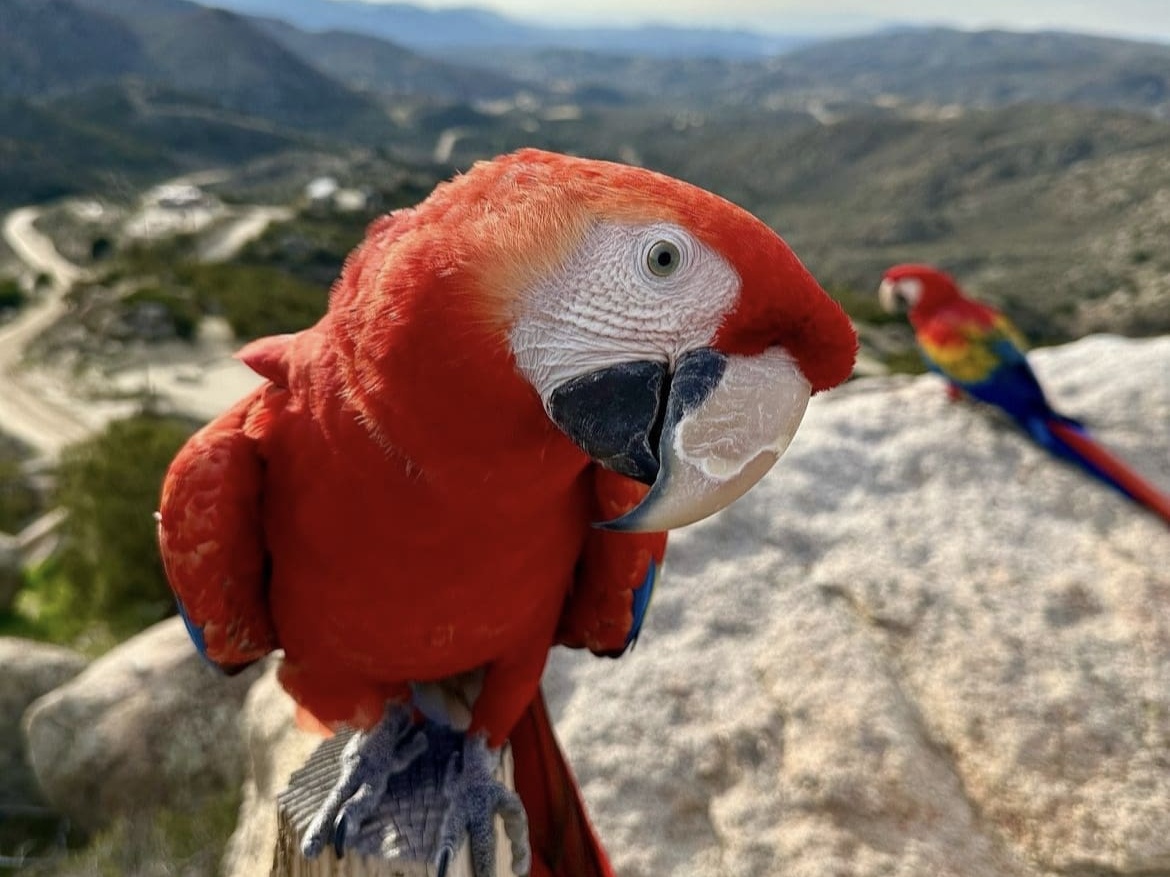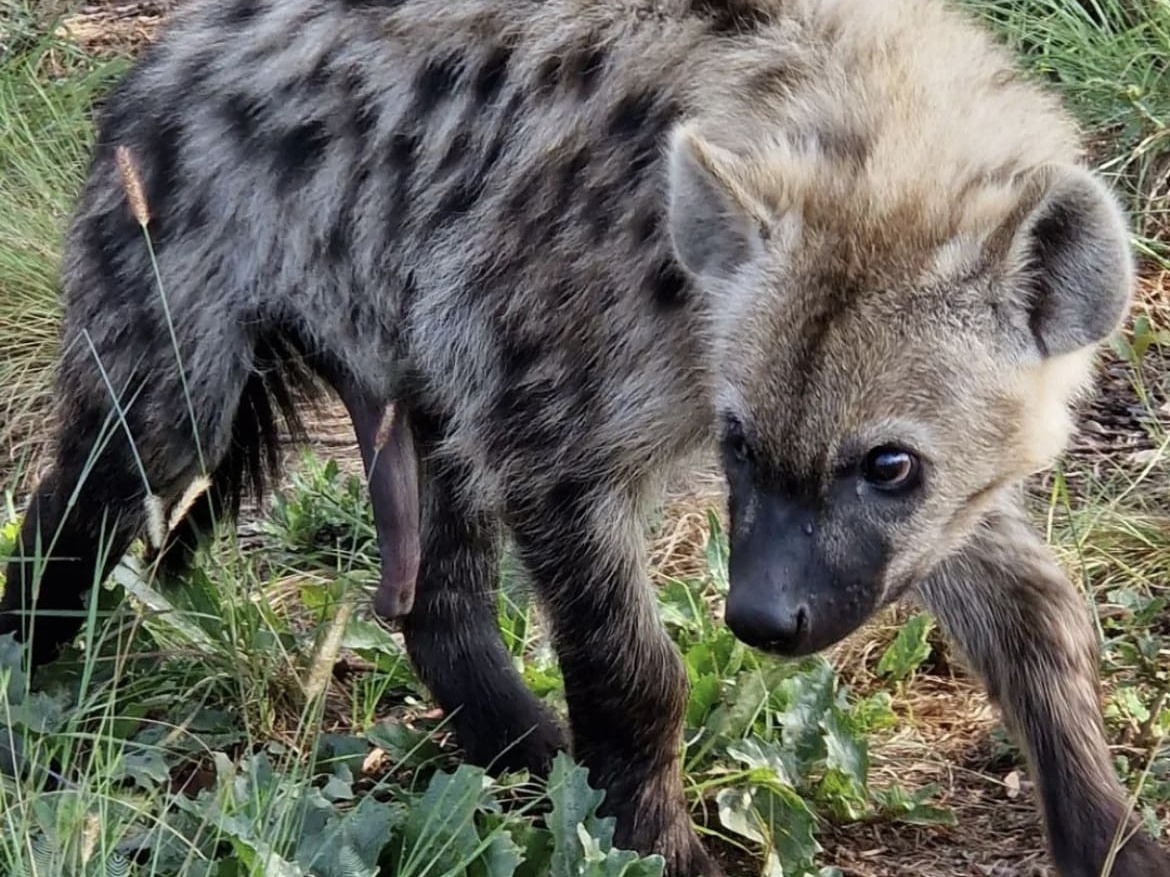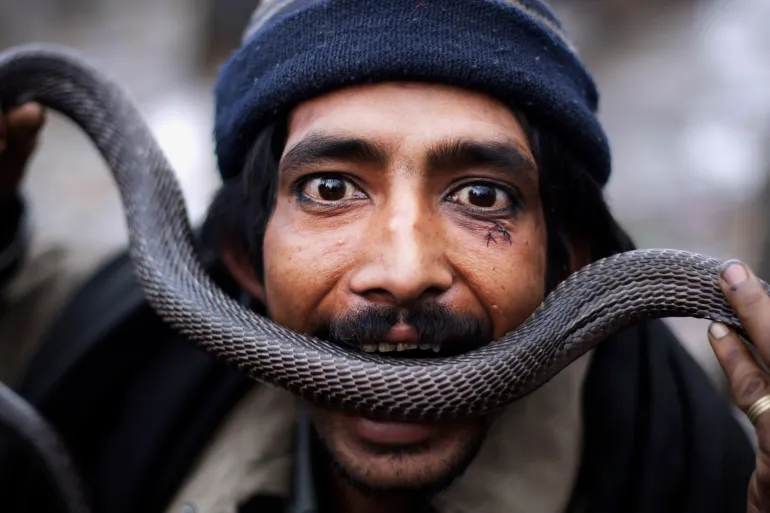A group of feral hogs, somehow managed to take down an entire drug operation in Tuscany, Italy after finding a stash of cocaine worth $22,000 hidden in a forest.
Police had wiretapped various members of the suspected ‘cartel’ and had been listening in on their calls when they heard something that sparked their interest.
The gang complained that the animals unearthed and broke into a sealed package of cocaine hidden in the Tuscan forest, before scattering the contents throughout woodland.
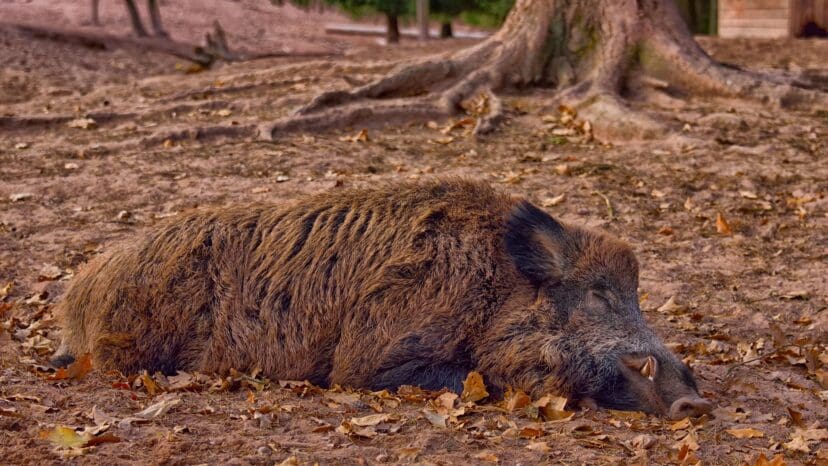
With this information, police were able to dismantle the entire operation. Four suspects – an Italian and three Albanians – were arrested on drug charges after the bust, which left two members in jail and two under house arrest, according to Italian newspaper Il Tirreno.
The gang first came onto the police’s radar during an investigation into the murder of a 21-year-old Albanian in May last year, with officials soon learning of a group allegedly smuggling drugs from Perugia to various provinces, including Siena and Arezzo.
Police said they estimate the suspects traded approximately two kilograms of cocaine every month, with the gang netting the equivalent of between $90 and $120 per gram. A profitable business, until the boars dug up and destroyed $22,000 worth in the forest.
Wild boar are found in increasing numbers across the Italian countryside, but it’s not just drug dealers who have been affected by them. Earlier this month, farmers in Rome called for action from the government, complaining the animals are to blame for incidents of land damage and road accidents, as per The Guardian.
Ettore Prandini, the president of farming association Coldiretti, said:
It is no longer just a question of compensation but a matter of personal safety and it must be resolved. Ministries and leaders of regions and municipalities must act in a concerted manner to draw up an extraordinary plan without administrative obstacles, otherwise the problem is destined to get worse.
Officials say the number of wild boar in Italy, approximately two million, have doubled since 2015 and are responsible for about 10,000 road accidents each year.
SOURCE: UNILAD
STAY UPDATED
Join our community of keen travellers, wildlife enthusiasts and adventure seekers.
Volcano Erupts In Indonesia: More Than 11,000 Evacuated
April 19, 2024
Rising from the Depths: The Volcanic Agitation of Mount Ruang
In the quiet darkness of a Tuesday night in North Sulawesi Province, Indonesia, the earth reminded everyone of its fiery core as Mount Ruang erupted, catapulting ash and smoke over two kilometers into the sky.
This dramatic spectacle marked the beginning of a series of eruptions that would see more than 11,000 residents hastily evacuating under the cloak of uncertainty and ash.
The Awakening Giant
Mount Ruang, a 725-meter colossus, is no stranger to the limelight, having etched its power in the history books with a catastrophic eruption in 1871 that triggered a tsunami. This week’s activity began at 9:45 PM local time, with the volcano asserting its might in a display that lit up the night sky with billowing smoke and cascading lava flows that painted the dark waters a glowing red.
Local authorities, quick to respond, escalated the alert level to four—the highest possible—while expanding the exclusion zone from four kilometers to six. Abdul Muhari, head of the disaster agency’s data communications and information centre, underscored the urgency of the situation, noting that everyone within this newly defined danger zone had to move to safer grounds immediately.

A Community on the Move
The initial exodus saw over 800 individuals relocate to Tagulandang Island, with subsequent eruptions necessitating further evacuations to the provincial capital, Manado.
The logistics of moving thousands in the face of an ongoing natural disaster are daunting. Yet, the community's resilience and the coordinated efforts of local authorities have painted a picture of determination and solidarity.
The Broader Impact
The eruptions have not only disrupted lives but also air travel. The spread of volcanic ash led to the temporary closure of Sam Ratulangi International Airport, a crucial hub with links to China, Singapore, and South Korea. Flights from Kota Kinabalu International Airport in Malaysia also faced significant disruptions, emphasizing the far-reaching impacts of such natural events.
Important Travel Update:
— Malaysia Airlines (@MAS) April 18, 2024
Malaysia Airlines has suspended several flights to/from KL International Airport (KUL) to Sabah and Sarawak today, 18 April 2024 due to the volcanic eruption at Mount Ruang, Indonesia.
Our priority is your safety. We're closely monitoring the situation…
A Geological Hotspot
Indonesia's geographic positioning on the 'Ring of Fire'—a major area in the basin of the Pacific Ocean where many earthquakes and volcanic eruptions occur—makes it a hotspot for seismic and volcanic activity. The country hosts 120 active volcanoes, and the memory of the 2018 Anak Krakatoa eruption, which claimed hundreds of lives, is still fresh.
Reflecting on Nature’s Might
The ongoing situation at Mount Ruang is a stark reminder of the dynamic and sometimes perilous nature of our planet. As scientists and authorities work to monitor and respond to these geological events, the resilience of the affected communities continues to be tested. The eruptions serve as both a spectacle of nature’s raw beauty and a call to respect and prepare for its potential fury.
In the face of such overwhelming natural power, the spirit of the people in North Sulawesi is a testament to human resilience. The coming days will undoubtedly be challenging, but also a chance for collective learning and adaptation in the shadow of one of nature’s most awe-inspiring phenomena.
Hunting For The ‘Extinct’ Indonesian Tiger In Indonesia
April 18, 2024
The Quest for the Javan Tiger: A Glimmer of Hope in Indonesia
In the lush, verdant wilderness of West Java, Indonesia, a remarkable and potentially groundbreaking discovery has rekindled hope for a species long thought to be extinct: the Javan tiger.
The news broke following an intriguing study conducted by Indonesia's National Research and Innovation Agency (BRIN) and published by Cambridge University Press. It centered on a single strand of tiger hair found in 2019, snagged on a fence near Sukabumi city.
This finding has spurred a nation-wide hunt, leveraging camera traps and DNA sweeps, to uncover whether the Javan tiger still prowls the Indonesian forests.
The hair, with genetic markers pointing to the Javan tiger, presents a thrilling scientific mystery. According to the research, local resident Ripi Yanur Fajar first noted the hair along with footprints and claw marks at a plantation.
This evidence has not only captured the imagination of the local community but also mobilized the country's environmental efforts.
Satyawan Pudyatmoko, a ministry official overseeing conservation, emphasized the cautious optimism permeating the scientific community, stating, "The research has sparked speculation that the Javan tiger is still in the wild."
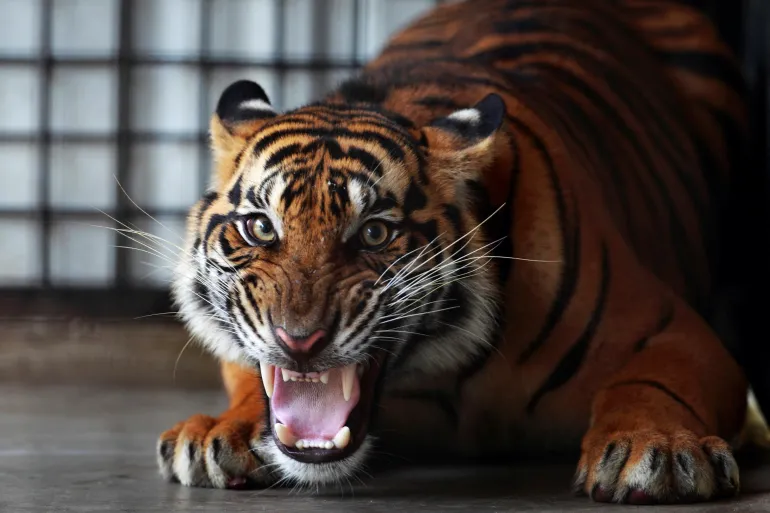
The Conservation Conundrum
The potential rediscovery of the Javan tiger is not just a scientific curiosity—it's a conservation imperative. The Javan and Balinese tigers were declared extinct in the 1980s and 1940s, respectively, victims of relentless poaching and habitat destruction.
Today, only the Sumatran tigers remain, with fewer than 400 individuals in the wild, as estimated by the International Union for Conservation of Nature. The survival of the Javan tiger could signify not only a miraculous beat against extinction but also a critical new chapter in Indonesia's environmental policy.
However, this pursuit is fraught with challenges. Muhammad Ali Imron, head of the WWF Indonesia’s forest and wildlife program, expressed concerns about publicizing the findings too widely.
The fear is that drawing too much attention might attract poachers, turning a conservation opportunity into a crisis. As such, the balance between excitement for discovery and the practicalities of protecting potentially surviving tigers is delicate.
Reflections on Conservation Efforts
The story of the Javan tiger is a poignant reminder of the fragility of our planet's biodiversity. It underscores the urgent need for robust environmental policies and proactive conservation strategies.
If the Javan tiger does indeed still exist, it will become a symbol of hope and a testament to nature's resilience. But it also underscores the obligations of not only governments but also local communities and international bodies to safeguard these treasures.
The efforts to confirm the existence of the Javan tiger continue, blending hope with scientific rigor. As researchers press on, supported by the Indonesian government and international conservation groups, the story of the Javan tiger could either be a remarkable tale of survival or a somber epitaph for a species lost to history.
Either outcome will undoubtedly shape conservation dialogues globally, reminding us of our enduring responsibility to the natural world.
Source: Al Jazeera
‘Skywalker’ Ape Discovered In Jungles Of Myanmar
April 18, 2024
The Echoes of Survival: The Skywalker Gibbons of Myanmar
In the verdant jungles of Myanmar, a recent discovery has not only expanded our understanding of biodiversity but has also ignited hope for conservationists globally.
The Skywalker gibbons, a species first identified in China in 2017 and named with a nod to the Star Wars saga, have now been confirmed to inhabit the remote forests of Myanmar.
This finding is a critical step in ensuring the survival of a species that mirrors the traits of resilience and uniqueness akin to their cinematic namesake.
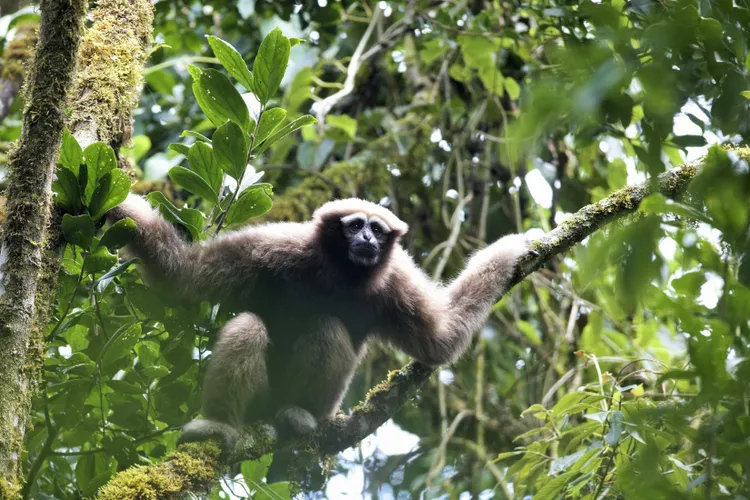
Discovery and Identification
The journey to this significant discovery began with acoustic monitoring of the gibbons’ haunting morning songs, a method that allowed researchers to pinpoint their presence without direct visual contact.
This non-invasive technique captures the essence of modern conservation efforts—blending technology with traditional fieldwork.
The use of DNA analysis from discarded plant material further solidified the presence of 44 new groups of Skywalker gibbons in Myanmar, a testament to the meticulous and innovative approaches adopted by the research teams from Fauna & Flora and Nature Conservation Society Myanmar.
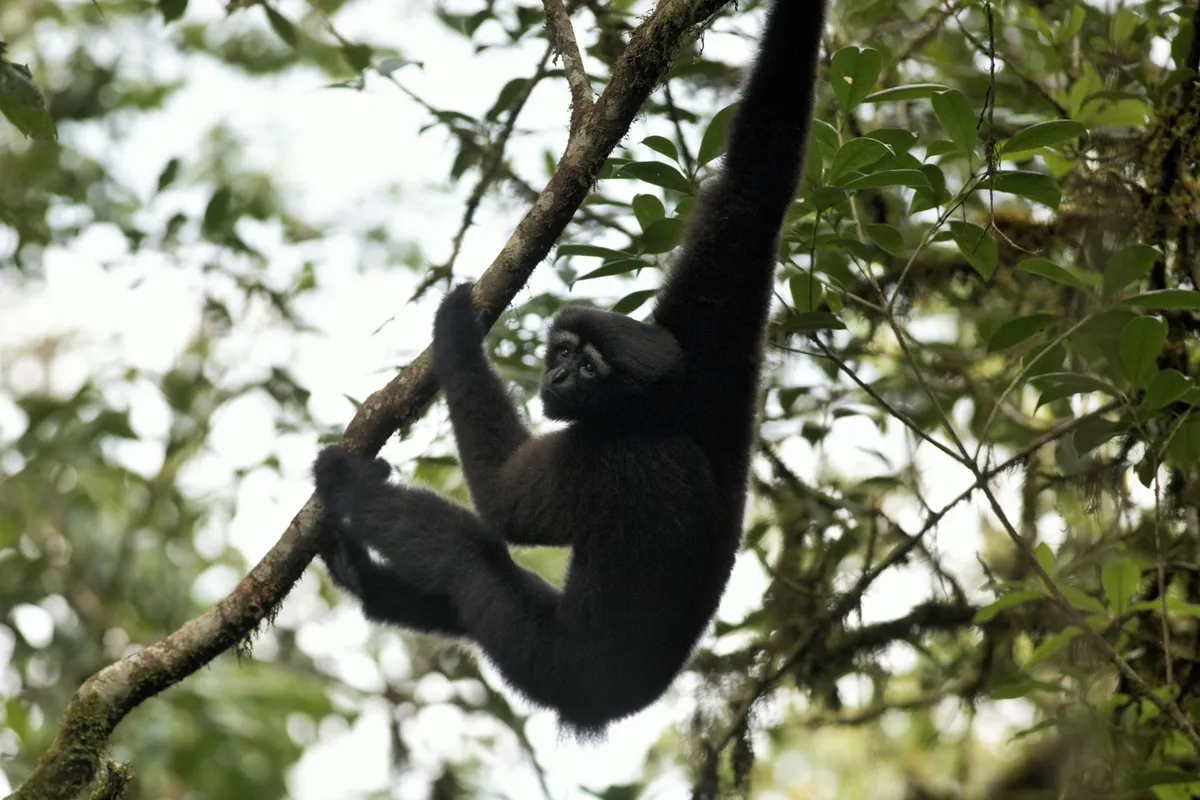
READ NEXT: GET TO KNOW THE SPIDER MONKEY
Characteristics and Challenges
Skywalker gibbons (Hoolock tianxing) are distinguished from their close relatives by subtle yet distinct physical differences such as thinner eyebrows and a darker beard, which are not just mere aesthetic details but are adaptive traits honed by evolution.
Despite their enchanting presence, these primates are under siege from an all-too-common enemy: habitat loss. With Myanmar's existing protected areas covering a mere 4% of suitable gibbon habitat, the challenges are daunting.
The forests that cradle these gibbons are vanishing, sliced away by deforestation and degraded by human encroachment.
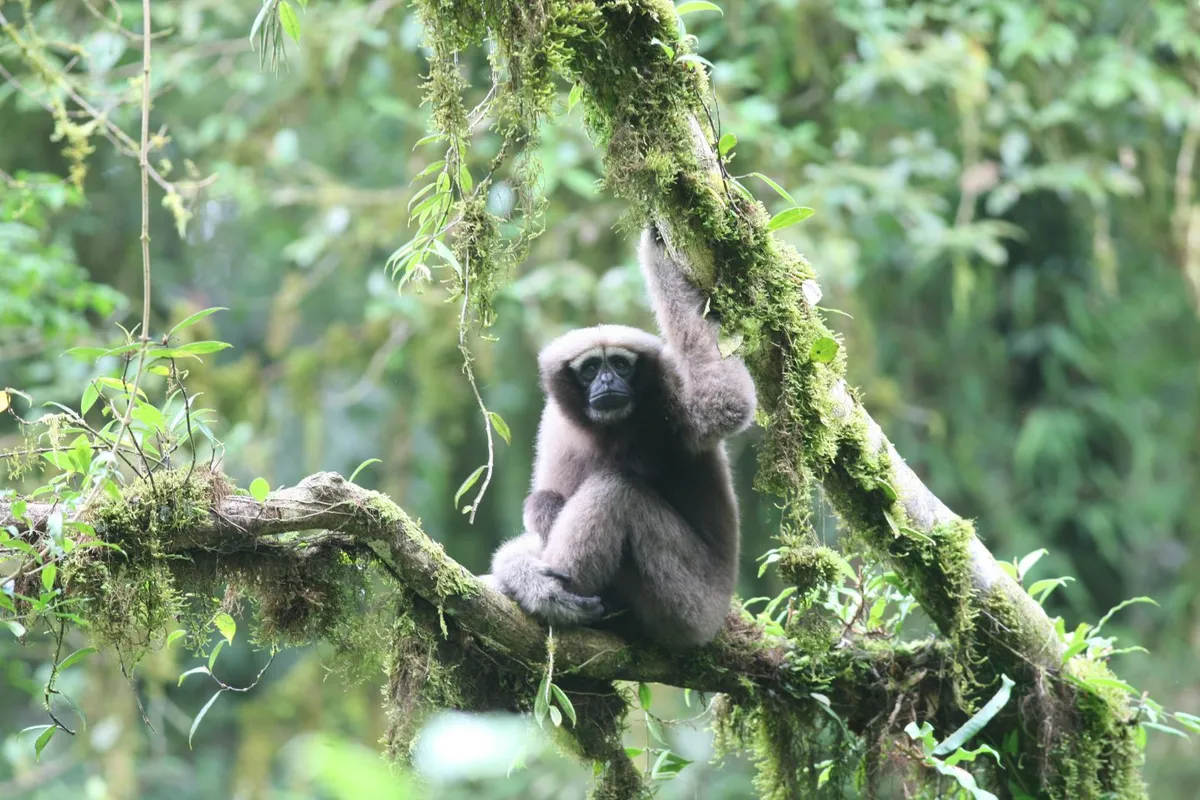
Conservation Efforts and Future Prospects
The discovery has sparked a broader conservation dialogue, emphasizing the need for a dual approach combining government-led protection with community-based conservation initiatives.
Local communities have shown a willingness to engage, with some expressing interest in establishing community protected areas and launching conservation awareness programs aimed at curbing poaching.
This collaborative spirit is essential, as the preservation of the Skywalker gibbon isn’t just about saving a species but about maintaining the ecological balance they help sustain.
The plight of the Skywalker gibbons serves as a poignant reminder of our intertwined destinies with the natural world. These creatures, with their distinct songs and familial groups, are not just inhabitants of their forests but are custodians of their ecosystems.
Protecting them is a moral imperative that transcends borders and species—a call to action to preserve the rich tapestry of life that, once unraveled, cannot be rewoven.
Source: Discover Wildlife
Silent Swimming Schools Of Fish Are Inspiring Submarine Design
April 18, 2024
Silence Beneath the Waves: How Fish Schools Influence Stealth Technology
In the quiet depths of our oceans, schools of fish exhibit a fascinating natural phenomenon of "acoustic stealth," swimming with such synchrony that they mimic the sound of a single fish rather than a collective.
This remarkable trait, recently studied by engineers at Johns Hopkins University, could revolutionize our approach to submarine and underwater vehicle design, offering a new blueprint for stealth technology in marine engineering.
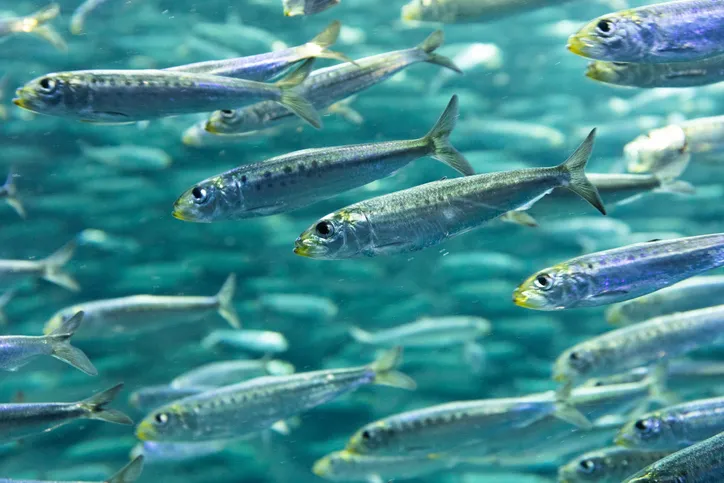
The Study of Silence
The study, led by Ji Zhou and Rajat Mittal and published in the journal Bioinspiration & Biomimetics, delves deep into the fluid dynamics and biomechanics of bio-locomotion.
Mittal's team, intrigued by the efficiencies and potential advantages of fish swimming in schools, embarked on a quest to understand how these natural formations impact underwater noise—a key factor in predator evasion and environmental interaction.
Using sophisticated 3D models of common mackerel, the researchers simulated various swimming behaviors to observe noise production. Their findings were illuminative: fish, by syncing their tail flaps and swimming closely, could significantly reduce the noise they produce.
This is because sound waves produced by each fish can cancel each other out when synchronized perfectly, much like noise-cancelling headphones work to block external sound.
When fish swim in configurations where their tails move in opposite directions at the same time, they cancel out each other’s sound waves and so are quieter. Credit: Johns Hopkins University
Implications for Underwater Technology
The implications of these findings extend far beyond the natural world. Traditional underwater vehicles, which rely on noisy rotational rotors for propulsion, could see a transformative shift towards quieter, more efficient operations by mimicking these natural movements.
As Mittal explains, “This could lead to the development of underwater vehicles that are both efficient and stealthy, drawing directly from the natural mechanisms evolved by schooling fish.”
The study not only sheds light on the acoustic benefits of synchronized swimming in fish but also opens up a myriad of applications in human technology. Quieter submarines and underwater drones could drastically reduce the ecological footprint of human activity underwater, lessening the disruption to marine life and improving the stealth capabilities of these machines.
A Step Towards Harmonious Technology
Incorporating bio-inspired technologies into modern engineering is a step towards more sustainable and harmonious environmental interactions.
As we continue to explore the depths of our oceans and develop technologies that operate within these realms, lessons from nature, such as those provided by schooling fish, are invaluable.
They remind us that often, the best technological advancements come from observing and emulating the natural world.
The dance of the mackerel, a silent symphony beneath the waves, thus becomes a template for innovation. As we harness these insights, we edge closer to a future where our technologies can seamlessly blend into their surroundings, just as a school of fish blends into the quiet of the deep sea.
This study is a testament to the potential of interdisciplinary research and the unexpected ways in which the mysteries of nature can inspire human ingenuity—pointing us towards quieter, more subtle forms of existence and operation beneath the sea.
Source: Discover Wildlife
Snakebites Are Rising In South Asia – Why?
April 17, 2024
The Growing Snakebite Crisis in South Asia
In the sweltering heat of South Asia, where the lands weave through a tapestry of dense forests and bustling human settlements, an age-old nemesis slithers silently—the venomous snake.
The rising frequency of snakebites in this region is not just a startling statistic but a pressing concern that beckons for immediate and effective responses.
The Stark Reality of Rising Snakebite Incidences
Every year, over 5.4 million people worldwide fall victim to snakebites. Half of these cases involving venomous species.
South Asia, a biodiversity hotspot for venomous snakes, accounts for nearly 70% of these fatal encounters. India alone sees approximately 58,000 deaths annually from about one million cases of snakebite envenoming. This distressing figure is projected to climb, influenced heavily by the specter of climate change.
The 2018 study from the University of Kelaniya in Sri Lanka underscores a grim forecast: the number of snakebites may surge by over 30% in the next 25 to 50 years due to changing climatic conditions. As temperatures rise and habitats alter, snakes are pushed into closer proximity with humans, escalating the odds of venomous interactions.
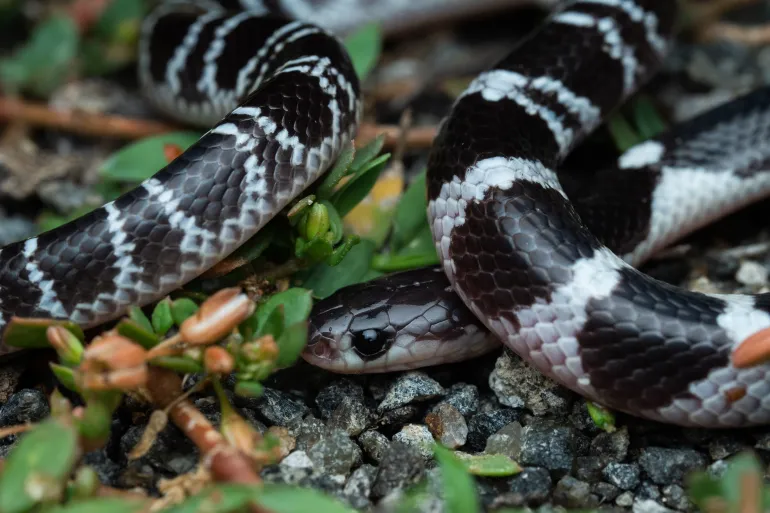
Voices from the Ground: The Human Cost
The narrative of Kabiraj Kharel, a farmer from Nepal, brings a harrowing personal dimension to the statistics. Bitten by a krait while farming, Kharel's account of the ordeal highlights the acute dangers and the terrifying immediacy of venomous snakebites.
Recounting his terrifying encounter Kharel said, "I thought I was going to die." His narrative of the frantic rush to a hospital, over 25 kilometers away, after the snakebite, highlights the acute challenges in accessing timely medical aid in rural areas.
Dr. Sadanand Raut, a medical expert and snakebite prevention advocate from India, emphasizes the urgency of timely medical intervention. The effectiveness of antivenom, a life-saving treatment derived from the very poison that threatens lives, can mean the difference between life and death.
However, the availability of this antidote is hindered by high costs, lack of refrigeration facilities, and inadequate production capabilities, particularly in rural areas where snakebites are most prevalent.
READ NEXT: THE DEADLIEST SNAKES IN AFRICA
The Bigger Picture: Ecological and Economic Implications
Beyond the immediate threat to human life, the rise in snakebites poses broader ecological and economic challenges. Snakes play a pivotal role in the ecosystem, primarily through their control of rodent populations, which are known to destroy significant portions of agricultural yields. The decline in snake populations, therefore, can lead to uncontrolled rodent growth, impacting food security and livelihoods.
Conservation biologist Michael Starkey points out that climate change and human encroachment on natural habitats not only displace snake populations but also disrupt the delicate balance of local ecosystems. The construction of urban infrastructure, for example, encroaches on the natural habitats of snakes, increasing the likelihood of encounters.
"Rising temperatures...are known to make habitats for some species of snake unsuitable for them," he explains, illustrating how environmental changes force snakes into closer contact with humans.
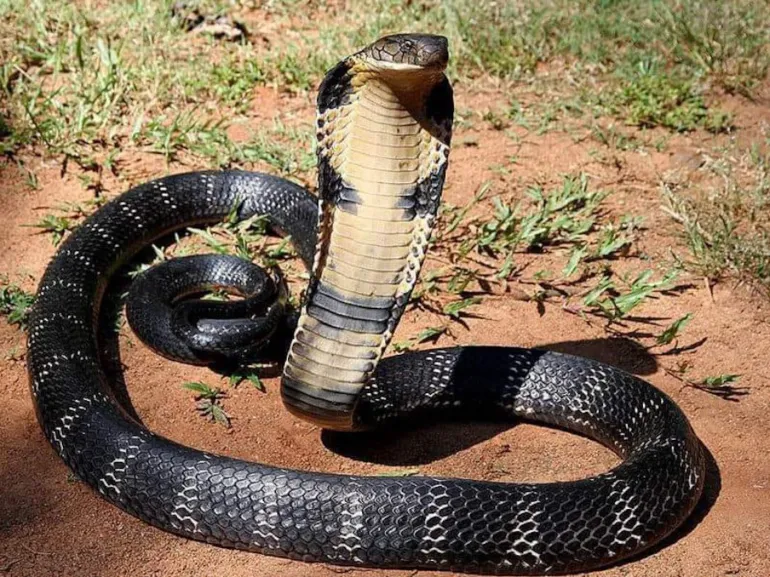
Forging Paths to Coexistence
The path forward requires a multi-faceted approach. Awareness and education about snakebite prevention and treatment need to be ramped up, especially in rural and tribal areas. Infrastructure improvements, such as the local production and distribution of antivenom, along with better healthcare facilities, could significantly reduce mortality rates.
Rmaah Memon, a physician with insights into the challenges of antivenom distribution, argues for better accessibility and production of antivenom. "Antivenom is very expensive so making it more affordable would also be a step in the right direction," she notes, addressing one of the many facets of the comprehensive response required.
Moreover, a shift in perspective is essential. Snakes, often vilified and feared, are crucial for the ecological balance. Educating communities about the ecological benefits of snakes and promoting coexistence can help mitigate conflicts.
READ NEXT: THE MOST VENOMOUS SNAKES IN AUSTRALIA
The snakebite crisis in South Asia is a complex interplay of environmental changes, human activity, and socio-economic factors. As the region grapples with this escalating challenge, the global community must lend its support to local efforts.
Only through sustained and cooperative endeavors can we hope to address this public health issue, ensuring safer futures for both human and snake populations alike.
What are the most venomous snakes in South Asia?
South Asia, known for its rich biodiversity, is home to some of the world's most venomous snakes.
These snakes pose significant risks due to their potent venom, which can cause severe medical emergencies.
Here are the ten most venomous snakes in this region:
- Indian Cobra (Naja naja) - Also known simply as the cobra, this snake is feared for its ability to deliver a neurotoxic venom that can cause paralysis and respiratory failure.
- Common Krait (Bungarus caeruleus) - The krait's venom is highly toxic, primarily neurotoxic, and even small amounts can cause severe muscle paralysis.
- Russell’s Viper (Daboia russelii) - Known for causing the most snakebite fatalities in India, its venom can lead to severe bleeding disorders, kidney failure, and pain.
- Saw-Scaled Viper (Echis carinatus) - This viper's venom is particularly haemotoxic, leading to extensive bleeding and tissue damage.
- King Cobra (Ophiophagus hannah) - The largest venomous snake, the king cobra's neurotoxic venom can kill a human within hours if untreated.
- Hump-Nosed Pit Viper (Hypnale hypnale) - Although smaller, this viper's venom can cause severe swelling and bleeding, and its bites are often underestimated.
- Indian Krait (Bungarus fasciatus) - Another krait species, known for its highly potent venom which is primarily neurotoxic.
- Green Pit Viper (Trimeresurus spp.) - These vipers, found across various habitats, deliver a venom that can cause prolonged bleeding and necrosis.
- Banded Krait (Bungarus fasciatus) - Easily recognized by its distinctive yellow and black bands, its venom is highly neurotoxic.
- Bamboo Pit Viper (Trimeresurus gramineus) - While less aggressive, the venom of this snake can cause significant haemotoxic effects.
These snakes, while dangerous, are critical to their ecosystems and often only pose a threat when provoked or accidentally encountered. Effective medical treatment and education about these snakes can help mitigate the risks associated with their bites.

